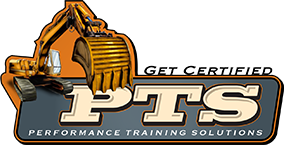Individualized Education Programs can help set the stage for your working future and career path.
With graduation day closing in across the country, many high school students are exploring the next steps in their educational or professional development. An important consideration, for those who qualify, is how to apply Individualized Education Programs (IEPs) toward their next steps. For example, it’s possible to use IEP benefits for heavy equipment operator training.
An Individualized Education Plan is a program developed for a child with an identified disability who is attending an elementary or secondary education institution. It is designed to ensure the student receives specialized instruction and other related services. The child, family members, designated advocates, and various education personnel develop the IEP.
A typical IEP includes ways for the child to progress in the general curriculum of the school and plugs them into all related services for which they qualify while also arranging the accommodations necessary for them to be successful. With measurable goals and objectives, IEPs create opportunities for the student and those involved with them. IEPs establish a structure for the student and their educators, provide a plan to follow, and individual focus that helps students progress toward a purposeful future.
IEP funding primarily comes through special education programs at the state and federal levels (contact us for details on specific funding opportunities). In the case of IEPs, the benefits associated with the program typically expire upon high school graduation or shortly thereafter. It makes the spring season critical for those using IEPs to tap into the benefits as much as possible to line up post-graduation opportunities to continue education or training programs.
Performance Training Solutions works with many varieties of students and is committed to working with them to find funding solutions or helping access benefits to pursue training as a heavy equipment operator. It is possible to use IEPs to support students’ efforts in acquiring training at PTS. Contact us to learn to apply such a program to further job and career development opportunities.
Beyond IEPs, there are many other programs and options individuals may turn to help fund job training at PTS. For veterans, PTS proudly accepts the Post 9/11 GI Bill® as well as Veteran Readiness and Employment (VR&E) Program Chapter 31 benefits.
PTS also serves many students funded by training grants through programs such as the Workforce Innovation Opportunity Act and the Trade Adjustment/Readjustment Act. Depending on your circumstances, these training grants may include additional funds for lodging, transportation, and meals. Multiple different federal and state grants may also help fund training. Some examples include the Workforce Innovation and Opportunity Act (WIOA), Tribal Education (BIA), and the Department of Workforce Development.
Ready to take the next step? Schedule a free tour of our training facility and earn a tuition reduction in the process.
Heavy Equipment Operator Training Provides a Path Forward
Job training, like the operator programs offered by Performance Training Solutions, benefits those with learning disabilities or who have implemented IEPs. Using IEP benefits for heavy equipment operator training provides former training and a solid foundation for a potential long-term career or employment. Completing training programs increases the chances for the student to be hired in their chosen field and enter the workforce sooner — at PTS our courses are just three weeks (120 hours).
The requirements for entry into a heavy equipment operator program are within reach for most individuals, even those with a disability. Taking part in such courses helps students develop social skills, earn a greater sense of independence, and find increased confidence as they work toward a goal within a structured environment.
Just as importantly, finishing training and finding work as a heavy equipment operator provides a way for those with disabilities to find their way into a self-sustaining career. Jobs in the field have remained in demand consistently, even during the last two years with pandemic conditions, and boast strong salaries even at a beginner level. According to the U.S. Bureau of Labor Statistics, the average yearly earnings of a heavy equipment operator is $46,080. Meanwhile, the average salary for all occupations across the board was $37,690. It’s a significant difference and one that can grow as your skills and experience level do as well.
Ready to grow with heavy equipment operator training? Plan with the right course.
PTS Can Guide You on Using IEP Benefits for Heavy Equipment Operator Training
The training courses at PTS are designed with the student in mind. The goal is to provide a high-quality training experience to offer the fundamental knowledge and skills needed for entry-level employment in the field in addition to credentials and/or certifications to show potential employers what you have learned and the types of equipment you’re qualified to operate.
Small class sizes give each student the opportunity to learn and ask questions and allow our instructors to adjust the information delivery to meet the needs of the students. While a combination of textbooks, models, and visual presentations are used in the classroom environment, and there will be multiple-choice quizzes and tests, practical training will make up the bulk of your education. We’ll help you put theory into action with plenty of time in the seat of real equipment to learn.
PTS offers instruction that propels students into a new career and helps them meet all requirements quickly. We offer two three-week, 120-hour courses in heavy equipment operations and a third training course covering cranes.
Here’s a quick look at each of the three main courses offered at PTS.
- Heavy Equipment Operator 1 is an entry-level course and covers the knowledge and skills required to obtain employment as a skid steer, wheel loader, compactor, backhoe, or articulated off-road dump truck operator. Individuals also receive information on heavy equipment safety, basic operational techniques, and an introduction to earthmoving and soils.
- Heavy Equipment Operator 2 follows up on the initial training of HE Operator 1 and adds the layer of training needed for operating bulldozers, scrapers, excavators, and motor graders. During this second course, students also learn about site work, excavation math, the interpretation of civil drawings, and finishing and grading.
- Mobile Crane Operations gives you the background needed to obtain entry-level employment as an NCCCO certified crane operator. Our program includes both Mobile Hydraulic Telescopic Boom Swing-Cab and Telescopic Boom Fixed-Cab cranes. Topics covered include basic crane principles, wire rope and basic rigging practices, crane safety, and more.
 Proudly Serving Veterans
Proudly Serving Veterans

